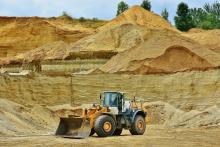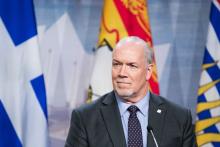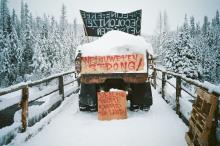The federal and provincial governments, LNG Canada, and Coastal GasLink Pipeline Ltd. all thought that a $40-billion fossil-fuel project would proceed in B.C. after proponents signed deals with 20 elected First Nations chiefs and councils.
But they may have underestimated the degree of public goodwill for Wet'suwet'en hereditary chiefs who are resisting a natural-gas pipeline that will provide fuel for the LNG plant near Kitimat.








